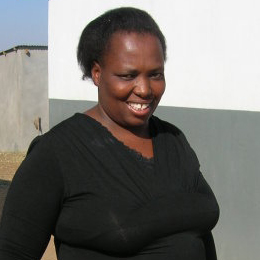Like every other geographical location, myths and folklore abound in Kerala. Parayi petta panthirukulam is one of the most popular amongst them. The story dates back to the famous Brahmin scholar of Vedas and Astrology, Vararuchi, who was one of the nine gems (Navaratnas) in the court of King Vikramaditya.
The legend goes on to say that Vararuchi, on his travel to Kerala, married a girl Panchami, as he was impressed by her intelligence and believed her to be of Brahmin origin. However, he did not know the truth that she was nurtured by a Brahmin but was actually born of low caste – that of a Parayi (Pariah – socially ostracized and therefore Pariah or outcast). This wedlock begot twelve children, eleven of whom were asked to be discarded by Vararuchi himself, the strange logic being that if God has provided a mouth, the child would live. This weird behaviour made Panchami sad and when the twelfth baby was born, she said he was born without a mouth. Unfortunately what she said came true and the boy had no mouth! Vararuchi is said to have taken the boy to a nearby hillock, where he turned into an idol. The deity on the hillock thus came to be known as Vayillakunnilappan, literally meaning the ‘Mouthless God on the hill’. The other 11 members of the clan are Agnihothri, Pakkanar, Rajakan, Uliyannoor Perum thachan, Vallon, Vaduthala Nair, Karakkal Matha, Uppukootan, Pananar, Naranth Branthan and Akavoor Chathan. Parayi petta panthirukulam, literally therefore means the "twelve castes borne from Pariah woman", is an important legend which probably highlights the evolution of the social fabric of ancient Kerala.
While all the twelve are unique in their own way, Naranth Branthan occupies a prime place as he is known as the lunatic prophet. Thiruvegappura and the nearby Rayiranelloor Mountain in Palakkad District, which is known as 'Branthachalam', became his usual abode. Due to his eccentric behaviour and unusual actions, people perceived him as 'mad'. At Rayiranellor Mountain on the 1st day of the month of Thulam he is said to have had the vision of the Devi (Goddess), and later for the benevolence of the people he enshrined Devi in the Mountain and started his worship there. No clear descriptions have yet been received of Naranath's last days. The Rayiranelloor Mountain is 500 feet tall and has a width of 300 acres. It was believed that Naranath Branthan would roll big rocks up the mountain painstakingly and once it’s reached atop he would roll them down. The sight of the rolling stones tickled him to no end and he would break into rapturous laughter.
Naranath Branthan’s with his acts of rolling stones uphill and then rolling them down reminds me of Sisyphus, in Greek mythology. But Sisyphus is condemned to roll a rock up to the top of a mountain, only to have the rock roll back down to the bottom every time he reaches the top. While one acted out of sheer volition, the other did it to atone for his sins. In any case, Albert Camus in his book “The myth of Sisyphus” identifies Sisyphus as the archetypal absurd hero, both for his behaviour on earth and for his punishment in the underworld. To him life must have been a constant struggle, without hope. Naranath Branthan’s actions however assume great significance. It simply conveys a universal truth. It’s so difficult to achieve things (rolling rocks uphill) whereas it is a no-brainer to fail. Another philosophical import of his strange act could be to illustrate the vain effort of humans to achieve something “great”. In today’s world of selfies, likes and shares, when people go to any lengths to achieve perceived fame, real as well as virtual, this is so topical. Pleasure of such achievements is so very ephemeral. It perhaps lends insight into the immediate emptiness one feels after success. Rolling stone uphill over and over again signifies our struggle behind something else, and once the target is achieved, we go on the same trip again. It seems like an act of constantly refuelling the emptiness with more empty, meaningless wants and needs. Here again he asserts the absurdity of human actions.
Today marks the 1st day of the month of Thulam, the third month (mid-October – mid November) in the traditional Kerala Malayalam Calendar. And today many people climb up the Rayiranelloor Mountains to relive the mythical legend of Naranath Branthan, who is said to have had the darshan of Devi on the 1st of Thulam. More than just climbing up the hill for old times’ sake, it would be even more meaningful to reflect on the acts that we engage ourselves in. For, Naranath Branthan’s as well as our own acts are mirrors that much help us keep perspective and refine our own lives – and well, give meaning to ours!


